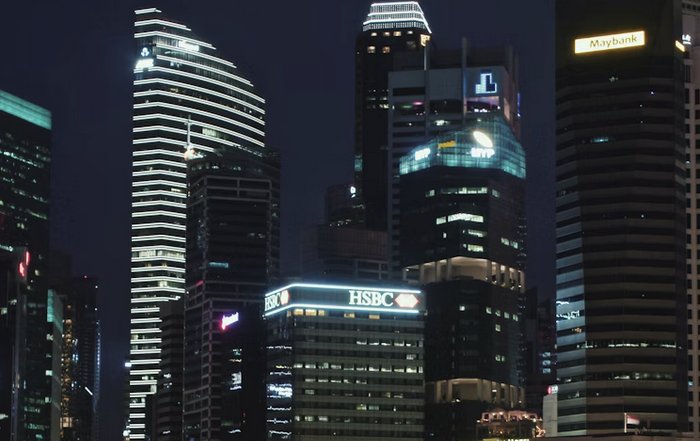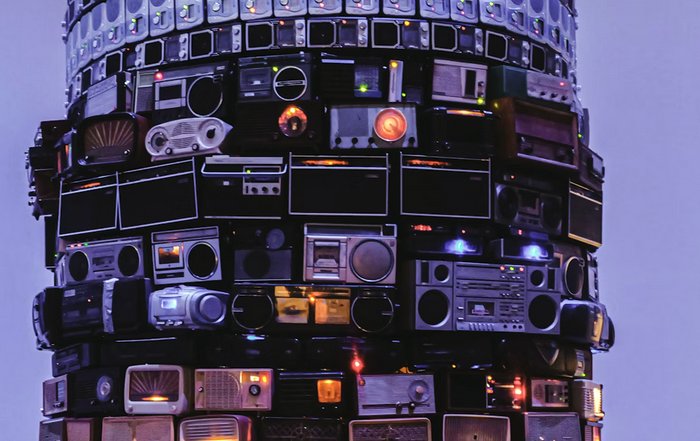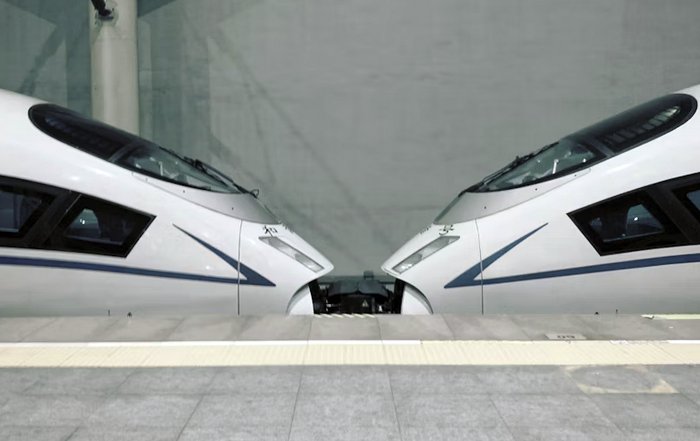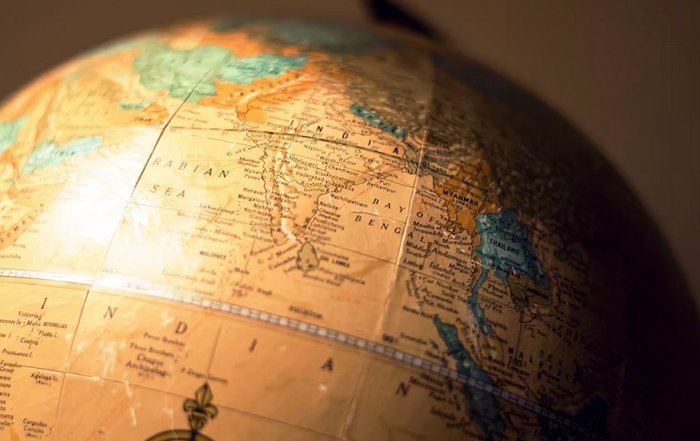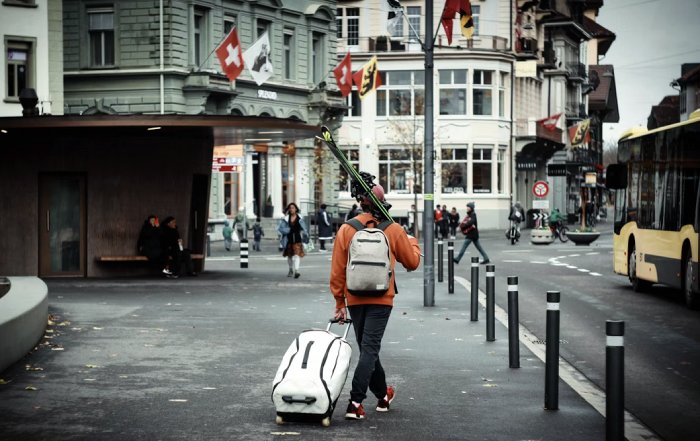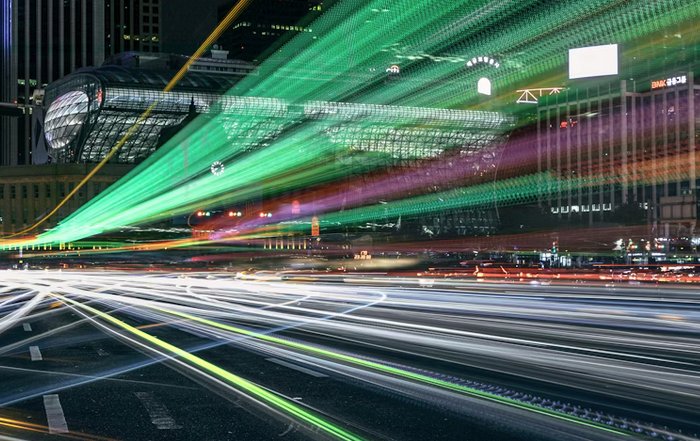Wellness Tourism and Its Global Appeal
Wellness Tourism at the Intersection of Health, Lifestyle, and Business
Wow, wellness tourism has firmly established itself as one of the most influential forces reshaping global travel, business strategy, and personal lifestyle choices, evolving from a niche luxury to a mainstream expectation among travelers across North America, Europe, Asia, Africa, and South America. Defined as travel primarily motivated by the pursuit of physical, mental, emotional, or spiritual well-being, wellness tourism now sits at the center of how societies think about health, work, and sustainable growth, and its rapid expansion reflects a deeper cultural shift toward long-term vitality, resilience, and purpose-driven living. For WorldsDoor, whose editorial lens spans health, travel, lifestyle, and business, wellness tourism has become a natural focal point, enabling the platform to connect individual aspirations with global economic and social transformations in markets as diverse as the United States, the United Kingdom, Germany, Canada, Australia, France, Italy, Spain, the Netherlands, Switzerland, China, Singapore, South Africa, Brazil, and beyond.
The post-pandemic years accelerated a reevaluation of what travel is for, and as healthcare costs continued to rise and mental health concerns gained visibility, more travelers began to see journeys not as escapist breaks but as strategic investments in their long-term well-being. The Global Wellness Institute has consistently identified wellness tourism as one of the fastest-growing segments of the travel economy, and its most recent analyses indicate that demand is being driven by structural forces such as aging populations, the normalization of hybrid and remote work, and increased awareness of chronic disease prevention. Travelers from major outbound markets now seek restorative, evidence-informed experiences rather than purely consumptive holidays, and destinations from Thailand to Spain, from Japan to South Africa, and from Brazil to New Zealand are repositioning their tourism narratives around holistic well-being, integrating environmental stewardship, cultural authenticity, and health science into cohesive value propositions. Within this evolving landscape, WorldsDoor positions wellness tourism not simply as a category of trips but as a framework for understanding how people in a complex world are redefining success, productivity, and quality of life.
Defining Wellness Tourism in 2026
In 2026, wellness tourism is best understood as a broad continuum of experiences that range from structured, clinically supervised health programs to more informal, self-directed journeys of renewal and reflection, all unified by the intention to enhance overall well-being rather than merely provide entertainment or distraction. At one end of this continuum lies health- and medical-adjacent travel, where guests visit integrative clinics, longevity centers, and metabolic or detox programs that often collaborate with leading institutions such as Mayo Clinic and Cleveland Clinic to align with rigorous clinical standards and the latest research in fields like cardiology, endocrinology, sleep medicine, and behavioral science. These programs might include comprehensive diagnostics, personalized nutrition, supervised exercise regimens, and mental health support, and they increasingly seek to demonstrate measurable outcomes through validated health metrics.
At the other end of the continuum are experiential wellness journeys that focus on prevention, stress reduction, and personal growth rather than treatment of acute conditions. Examples include forest bathing retreats in Finland and Japan, yoga and meditation immersions in Bali and India, thermal spa circuits in Italy and Germany, mindfulness residencies in the United Kingdom, digital detox stays in the Canadian Rockies, and nature-based regeneration escapes in New Zealand and Norway. These experiences draw on both traditional wisdom and contemporary psychology, aiming to reduce burnout, improve sleep quality, enhance emotional balance, and strengthen a sense of connection to community and nature. The World Health Organization continues to emphasize that health is a state of complete physical, mental, and social well-being, not merely the absence of disease, and wellness tourism operationalizes this definition by embedding health-promoting practices into the very structure of travel itineraries, rather than treating wellness as an optional add-on.
As travelers have become more discerning, they increasingly consult trusted resources such as Harvard Health Publishing, WebMD, and national health agencies before committing to specific programs, seeking interventions grounded in science rather than marketing hype. This shift from episodic pampering to sustained behavioral change is one of the defining characteristics of wellness tourism in 2026, and it aligns closely with the editorial approach of WorldsDoor, which consistently highlights how choices in lifestyle, work, and society can either erode or reinforce long-term well-being.
Global Demand Drivers: Demographics, Technology, and Culture
The global appeal of wellness tourism in 2026 is rooted in a convergence of demographic, technological, and cultural forces that cut across regions and income segments, even as they manifest differently in the United States, Europe, Asia, Africa, and Latin America. Demographically, aging populations in Japan, Germany, Italy, the United Kingdom, and many other developed economies are driving demand for preventive health solutions and age-friendly travel. Older travelers, often financially secure and time-rich, are increasingly unwilling to accept a narrative of inevitable decline and instead seek programs that promise improved mobility, cognitive resilience, cardiovascular health, and social engagement. Many of them view wellness travel as a complement to conventional healthcare, particularly as they become more aware of the role of lifestyle in conditions such as diabetes, hypertension, and depression.
At the same time, younger cohorts in North America, Europe, and fast-growing Asian markets such as South Korea, Singapore, and China are redefining wellness as a core dimension of identity and self-expression. For these travelers, especially millennials and Gen Z professionals, experiences that support mental health, authenticity, and purpose carry more weight than material consumption, and they are drawn to retreats that combine mindfulness, creativity, nature immersion, and community building. The normalization of conversations about anxiety, burnout, and loneliness, supported by organizations like the American Psychological Association and Mind in the United Kingdom, has reduced stigma and made it more socially acceptable-even aspirational-to prioritize mental and emotional well-being through travel.
Technological change is another powerful driver shaping wellness tourism in 2026. Wearables and health platforms from Apple, Fitbit, Garmin, and other innovators have made continuous tracking of heart rate variability, sleep stages, stress responses, and physical activity a daily routine for millions of people worldwide. Many wellness resorts and retreats now integrate these data streams into their programs, using dashboards and analytics to personalize interventions and demonstrate progress over the course of a stay. Telehealth and digital coaching solutions, often aligned with guidance from agencies such as the U.S. Centers for Disease Control and Prevention (CDC) and NHS England, facilitate pre-trip assessments and post-trip follow-ups, enabling continuity between the travel experience and everyday life. This fusion of digital health with in-person experiences resonates strongly with business leaders and knowledge workers who are accustomed to data-driven decision-making and want to see tangible returns on their investments in wellness.
Culturally, the rise of wellness tourism reflects a broader shift toward valuing time, attention, and inner life as scarce resources that require intentional stewardship. In high-pressure hubs such as New York, London, Frankfurt, Singapore, Hong Kong, and Sydney, executives increasingly view structured wellness retreats as strategic tools for leadership longevity, creativity, and risk management rather than indulgent luxuries. This changing mindset is echoed in policy discussions and thought leadership from organizations like the World Economic Forum, which highlights mental health and resilience as critical components of future-ready workforces. WorldsDoor, through its coverage of business, technology, and innovation, captures how wellness tourism is both responding to and shaping these cultural and organizational shifts.
Regional Hubs and Signature Wellness Experiences
By 2026, distinct regional profiles of wellness tourism have emerged, reflecting local cultures, natural assets, regulatory environments, and levels of infrastructure development, while collectively illustrating the global diversity of this sector. In North America, the United States and Canada have become epicenters of integrative medical-wellness experiences, particularly in states and provinces known for natural beauty and health-conscious populations, such as California, Arizona, Colorado, British Columbia, and Quebec. Here, destination spas and wellness resorts often collaborate with institutions like Stanford Medicine and Johns Hopkins Medicine, integrating insights from neuroscience, sleep research, metabolic health, and psychology into residential programs that aim to prevent chronic disease, optimize performance, and support recovery from burnout.
Europe offers a different but equally rich tapestry of wellness experiences. Central European countries including Germany, Switzerland, and Austria continue to build on their historical traditions of medical spas, thermal baths, and "Kur" therapies, modernizing them with contemporary diagnostics, sports science, and nutrition programs. In the Mediterranean basin, Italy, Spain, France, and Greece leverage their climate, coastline, and culinary heritage to design wellness offerings rooted in the Mediterranean diet, outdoor activity, and cultural immersion, a combination that aligns with research highlighted by organizations such as UNESCO and the World Health Organization on the health benefits of traditional diets and community-based lifestyles. Northern Europe, notably Sweden, Norway, Denmark, and Finland, emphasizes nature-based wellness, with experiences built around forests, lakes, saunas, and the concept of "friluftsliv"-an open-air life-which has been explored in depth by bodies like the European Environment Agency for its positive impact on mental health and social cohesion.
Asia remains a powerhouse of wellness tourism, blending centuries-old practices with cutting-edge innovation and drawing travelers from across the globe. Thailand continues to be a leading destination, offering integrative retreats that combine traditional Thai massage, herbal medicine, meditation, and contemporary fitness regimes, often framed within guidelines and best practices discussed by the World Tourism Organization (UNWTO). Japan presents a distinctive combination of onsen culture, forest therapy, Zen meditation, and meticulous hospitality, while South Korea's "K-wellness" concept extends the global influence of K-culture into aesthetics, dermatology, nutrition, and mental wellness. Singapore, with its advanced healthcare system and urban planning, serves as a regional hub for high-end medical-wellness programs and urban wellness experiences, frequently cited in analyses by McKinsey & Company on the future of health ecosystems in Asia.
In Africa and South America, wellness tourism is increasingly framed as a driver of inclusive development and environmental stewardship. South Africa leverages its biodiversity, coastline, and cultural diversity to create wellness itineraries that combine safaris, nature reserves, indigenous healing traditions, and community-based tourism. Brazil and neighboring countries in Latin America are emerging as destinations for retreats that connect wellness with the Amazon, Atlantic forests, and Afro-indigenous cultural practices, often within broader sustainability agendas informed by organizations like the United Nations Environment Programme (UNEP). These regional narratives are of particular interest to WorldsDoor, whose coverage of world issues and culture emphasizes how wellness tourism can become a bridge between global travelers and local communities, fostering mutual learning, economic opportunity, and responsible growth.
The Business of Wellness Tourism: Strategy, Investment, and Innovation
From a business perspective, wellness tourism in 2026 represents a complex, high-value ecosystem that spans hospitality, healthcare, technology, real estate, insurance, and consumer goods, and its growth is reshaping how organizations across these sectors conceptualize their offerings and long-term strategies. Global hotel groups, boutique operators, and branded residences are redesigning properties around wellness-centric value propositions, incorporating sleep-optimized rooms with circadian lighting, advanced soundproofing, and air quality controls; plant-forward and regionally sourced menus developed with nutrition experts; and integrated movement spaces that go far beyond conventional gyms to include yoga pavilions, nature trails, cold-plunge facilities, and recovery technologies. These enhancements are not merely cosmetic; they are increasingly supported by partnerships with sports scientists, physicians, psychologists, and wellness brands that lend credibility and differentiate properties in a crowded marketplace.
Investment trends underscore the strategic importance of wellness-oriented assets. Private equity firms, family offices, and sovereign wealth funds are actively acquiring or developing wellness resorts, integrated health villages, and mixed-use communities that combine residential, hospitality, and medical-wellness components. Reports from professional services firms such as Deloitte and PwC highlight wellness as a key driver of future hospitality and real estate returns, particularly in regions with aging populations, growing middle classes, and supportive regulatory frameworks. Corporate travel and human capital strategies are also evolving, as companies recognize the link between employee well-being and productivity, retention, and risk management. Many organizations now integrate wellness components into leadership programs, offsites, and incentive travel, drawing on guidance from the World Economic Forum and national health agencies on the importance of mental resilience and healthy work environments.
Innovation in wellness tourism extends beyond facilities into business models and digital platforms. Subscription-based wellness travel, where guests commit to recurring visits and receive continuous virtual coaching between stays, is gaining traction among professionals in the United States, the United Kingdom, Germany, Singapore, and Australia who seek structured, long-term support. Online marketplaces inspired by Booking.com and Airbnb are curating wellness-specific inventories, making it easier for travelers to compare retreats and verify quality standards. Some insurers and employers, particularly in North America and parts of Europe, are piloting programs that subsidize wellness travel for individuals who meet specific health criteria, informed by actuarial analyses that show potential long-term savings from preventive interventions. For WorldsDoor, which closely follows trends in innovation and technology, these developments position wellness tourism as a testbed for new forms of service delivery, data integration, and cross-sector collaboration.
Sustainability, Ethics, and the Responsibility to Do No Harm
The rapid expansion of wellness tourism has sharpened the focus on sustainability, ethics, and social responsibility, particularly among well-informed travelers and business leaders who are increasingly aware that wellness cannot be separated from environmental integrity and social justice. Many wellness experiences depend on pristine natural environments, local knowledge systems, and community participation, which means that unmanaged growth can easily damage the very assets that underpin the sector. Organizations such as the World Travel & Tourism Council (WTTC) and the Global Sustainable Tourism Council (GSTC) emphasize that wellness tourism must align with responsible resource management, fair labor practices, and cultural sensitivity if it is to be genuinely regenerative rather than merely extractive. Readers of WorldsDoor, who frequently engage with environment and sustainable content, are particularly attuned to these issues.
From an environmental perspective, wellness resorts and retreats are under increasing pressure to demonstrate alignment with science-based climate targets and biodiversity goals. Many leading properties are investing in renewable energy, water conservation, waste minimization, and habitat restoration, often drawing on guidance from the Intergovernmental Panel on Climate Change (IPCC) and technical resources provided by organizations such as Carbon Trust. Transparency is becoming a non-negotiable expectation, as travelers consult independent sources including CDP and national environmental agencies to evaluate the performance of destinations and brands. In regions vulnerable to climate change, such as low-lying islands, alpine environments, and drought-prone areas, wellness operators must also grapple with adaptation strategies and the ethical implications of attracting visitors to fragile ecosystems.
Ethically, wellness tourism must navigate complex questions around cultural appropriation, equity, and access. Many of the practices that underpin popular wellness experiences-yoga, meditation, traditional Chinese medicine, Ayurveda, indigenous healing rituals-have deep roots in specific cultures and spiritual traditions. Responsible operators work closely with local practitioners, elders, and scholars to ensure respectful representation, fair compensation, and authentic storytelling, in line with principles articulated by bodies like UNESCO and Amnesty International. There is also a growing recognition that wellness tourism should not be reserved solely for affluent global travelers. Philanthropic organizations such as The Rockefeller Foundation and various public-private partnerships are exploring models that extend wellness benefits to broader populations, including frontline workers, educators, and lower-income communities, through subsidized retreats, community wellness hubs, and integrated health-tourism initiatives. WorldsDoor, reflecting this ethical perspective through its ethics and society coverage, highlights examples where wellness tourism supports local empowerment, knowledge preservation, and inclusive prosperity.
Education, Science, and Evidence-Based Practice
As wellness tourism has matured, the demand for evidence-based practice and rigorous evaluation has increased, driven by travelers, regulators, insurers, and investors who want to distinguish between meaningful interventions and superficial offerings. Universities and research centers in the United States, the United Kingdom, Germany, Sweden, Singapore, Japan, and other countries are collaborating with wellness destinations to study the impact of structured programs on biomarkers, mental health indicators, and behavioral outcomes. Findings are increasingly disseminated through scientific platforms such as PubMed and journals including The Lancet, providing a growing body of evidence on how interventions like mindfulness-based stress reduction, nature immersion, structured exercise, and dietary changes can reduce anxiety, improve sleep, and lower cardiometabolic risk.
Professional education within the wellness ecosystem is also evolving, with training programs for retreat facilitators, health coaches, therapists, and hospitality managers incorporating modules on psychology, physiology, cross-cultural communication, and ethics. Organizations such as the International Coaching Federation and national health boards are refining competency frameworks and certification pathways to raise standards and protect consumers from unqualified or unsafe practitioners. At the same time, digital education platforms and universities, many of which are profiled in WorldsDoor's education section, are democratizing access to knowledge about nutrition, exercise science, and mental health, enabling travelers to make more informed choices and to sustain the benefits of wellness travel once they return home.
Public health authorities and policymakers are beginning to integrate wellness tourism into broader strategies for population health, rural development, and social cohesion. Agencies such as Health Canada, Public Health Scotland, and the European Commission have explored how nature-based tourism, active mobility, and community-centered wellness initiatives can complement formal healthcare systems, reduce the burden of chronic disease, and support economic diversification in rural and peri-urban regions. This policy perspective reinforces the idea that wellness tourism, when responsibly designed and governed, can contribute to public health objectives rather than existing solely as a private consumer experience.
Food, Culture, and the Experience of Place
Food has emerged as a central pillar of wellness tourism, linking nutrition science with cultural heritage and the sensory experience of place, and it is one of the most tangible ways travelers encounter the intersection of health, environment, and identity. As awareness grows about the role of diet in preventing chronic diseases and supporting mental well-being, travelers increasingly look to trusted sources such as the Harvard T.H. Chan School of Public Health and national dietary guidelines to understand how whole foods, plant-forward meals, and traditional dietary patterns can improve long-term health outcomes. Wellness destinations respond by designing culinary programs that are both nutritionally robust and culturally authentic, using local and seasonal ingredients to tell stories about land, history, and community.
In Mediterranean countries such as Italy, Spain, France, and Greece, wellness itineraries frequently revolve around the Mediterranean diet, with cooking classes, farm and vineyard visits, and guided market tours that highlight olive oil, fresh vegetables, legumes, whole grains, and moderate wine consumption, all framed within a culture of conviviality and shared meals. In Japan, kaiseki cuisine and temple food are presented as mindful eating experiences that emphasize seasonality, aesthetics, and balance, while in Thailand, Vietnam, and Malaysia, travelers explore the health benefits of herbs, spices, and fresh produce through immersive workshops and street-food reinterpretations. In South Africa, Brazil, and other emerging wellness destinations, indigenous ingredients and preparation methods are showcased in ways that connect guests with local ecosystems and cultural narratives. For WorldsDoor, whose food and culture coverage emphasizes the role of gastronomy in shaping identity and community, this convergence of culinary arts and wellness underscores how deeply wellness tourism is tied to a sense of place.
Beyond food, cultural immersion plays a crucial role in the psychological and emotional dimensions of wellness. Participation in music, art, festivals, and everyday social rituals can strengthen a sense of belonging, meaning, and continuity, which psychologists and sociologists identify as protective factors for mental health and resilience. Organizations such as UNESCO and the Council of Europe have long argued that cultural participation is a pillar of human development, and wellness tourism that integrates cultural experiences-whether through traditional ceremonies in Thailand, flamenco performances in Spain, indigenous storytelling, or contemporary art scenes-can foster deeper reflection, empathy, and cross-cultural understanding. For a global readership that values transformative travel over mere sightseeing, WorldsDoor presents these cultural dimensions as integral, not peripheral, to the experience of wellness.
Looking Ahead: The Future Trajectory of Wellness Tourism
As the world moves, wellness tourism appears poised for continued expansion, but its long-term credibility will depend on its ability to remain grounded in evidence, ethics, and sustainability while adapting to shifting social and technological realities. Emerging trends include the rise of longevity-focused travel, where guests undergo comprehensive biometric testing, genetic analysis, and personalized interventions designed to extend healthspan rather than just lifespan, often under the supervision of multidisciplinary teams of clinicians and scientists. Mental health integration is deepening as well, with more destinations offering access to licensed therapists, group therapy formats, trauma-informed programs, and structured digital follow-up, in alignment with evolving best practices and standards in global mental healthcare.
Artificial intelligence and advanced analytics are set to further personalize wellness experiences, as programs dynamically adjust in response to real-time data on sleep, stress, movement, and mood. This heightened personalization, however, brings data governance and privacy to the forefront, requiring robust frameworks that align with regulations such as the EU's GDPR, the California Consumer Privacy Act, and emerging standards in Asia and other regions. Hybrid "wellness residencies," blending remote work, education, and wellness, are likely to become more common as professionals from the United States, the United Kingdom, Germany, Canada, Australia, Singapore, and other innovation hubs seek extended stays that allow them to combine productivity with structured self-care and community engagement.
For WorldsDoor, wellness tourism is not merely another travel segment; it is a narrative thread that weaves together health, travel, business, technology, environment, society, and sustainable development into a coherent story about how individuals, organizations, and communities are reimagining well-being in an interconnected world. As destinations across North America, Europe, Asia, Africa, and South America continue to innovate, the platform remains committed to offering readers nuanced, experience-informed perspectives that highlight both the opportunities and responsibilities inherent in this evolving field.
In 2026, the enduring appeal of wellness tourism lies not only in its promise of rest and rejuvenation but in its potential to catalyze lasting change in how people live, work, and relate to each other and to the planet. For business leaders, policymakers, educators, and travelers alike, it offers an invitation to step through a different kind of door-one that opens onto healthier, more connected, and more sustainable futures. As this journey unfolds, WorldsDoor will continue to illuminate the pathways, ask the difficult questions, and share the stories that help its global audience navigate the expanding world of wellness with discernment, curiosity, and trust.



